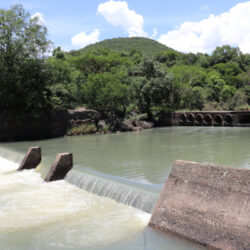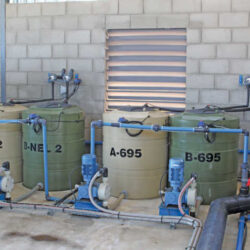A new water users association in northern Zululand will reportedly give thousands of smaller-scale black farmers there both access to and direct responsibility for this precious and essential resource.
Optimism is reportedly running high that the many farmers and other rural residents of two KwaZulu-Natal municipalities will finally have equitable and legal access to irrigation and potable water. This follows the recent launch of the Makhathini Lower Pongola Water Users Association (MLP WUA) for the adjoining uMkhanyakude and Zululand district municipalities.
The national department of water and sanitation (DWS) is supporting the establishing of WUA’s across the country. A WUA comprises a committee representing different groups of water users, such as farmers and other rural residents, in a particular area.
According to the MLP WUA’s treasurer, Dreyer Senekal, who farms irrigated sugarcane, cotton, citrus and fresh produce on a large scale in uMkhanyakude’s Mkuze district, the majority of this WUA’s committee of approximately 15 members are farmers. In turn, most of these are small-scale, although they also grow the likes of sugarcane, cotton and vegetables for commercial purposes.
Senekal explains that the MLP WUA’s committee has been given various responsibilities that will streamline diverse and legal access to much-needed water from the likes of the Jozini Dam and the Pongola River. However, final decisions on potential and existing water use applications by abstracters within the two municipalities, and of total water allocations, remain with the DWS.
“Our WUA covers a massive area of a few hundred thousand hectares. All farmers and other residents can apply for water directly with our office that will open in January. We will assess the merits of each application and help compile it before sending it on to the DWS. If the application first passes through us, it will more than likely be approved by the DWS,” Senekal says further.
Sifiso Mnguni is the MLP WUA’s chairperson and grows 60 hectares of irrigated sugarcane in the Jozini district. He says that feedback from preliminary consultations with many farmers in the two municipalities about the association’s formation and reasons therefore, have been positive.
On the Makhathini Flats alone there are over 1 700 sugarcane growers and thousands more farmers of various types and scales elsewhere who will also fall under the MLP WUA’s total operational area.
“These farmers and other water users under our association are now able to have a say in what their water needs are and to help manage our region’s water resources. The benefit for government of our WUA is that it is going to significantly improve farmers and other people having to pay for their water use. Until now, people not having water use licenses and not paying for their water has been a big problem,” explains Mnguni.
He adds that knock-on benefits of the better management of water resources under the MLP WUA include the creation of other business opportunities, like tourism, of people being motivated to reduce water pollution and of reduced opportunities for illegal water abstraction.
DWS minister, Senzo Mchunu, attended the recent official launch of the MLP WUA and took transfer of the 32-kilometre Makhathini water canal from the Silwane Community Development Trust whose land the canal traverses.
According to a DWS statement, this canal that has a capacity of 141 754 cubic metres, abstracts raw water from the 2,5 billion-m3-capacity Jozini Dam and delivers it to six different pump stations along its route. These pump stations deliver pressurised water to sprinkler, centre-pivot, flood and drip irrigation systems.
During an inspection of the canal that Mchunu undertook with his deputy minister, David Mahlobo, the two officials noted that parts of the canal have been vandalised and that there were also several illegal water abstraction points along its length. The canal was also polluted.
The DWS adds that an estimated R122 million is necessary to refurbish the canal to optimal functionality.
Mnguni says that once the MLP WUA is fully operational, which may take a few years given required repairs and additions to its water distribution infrastructure, the more equitably and efficiently distributed water will certainly contribute to improved agricultural production in that region. A key additional pillar for achieving the latter is extension, material and financial support to farmers by the KZN department of agriculture and rural development.
“We have a roadshow planned for next year where our association will visit all farmers and communities to inform and educate them about how their access to water works,” he continues.
Senekal explains that another key goal of the MLP WUA is to identify existing water use licenses and associated water allocations that are either not being used correctly or not being used at all. These might ultimately be cancelled and the associated water allocations transferred to others who need them and will use them correctly.



